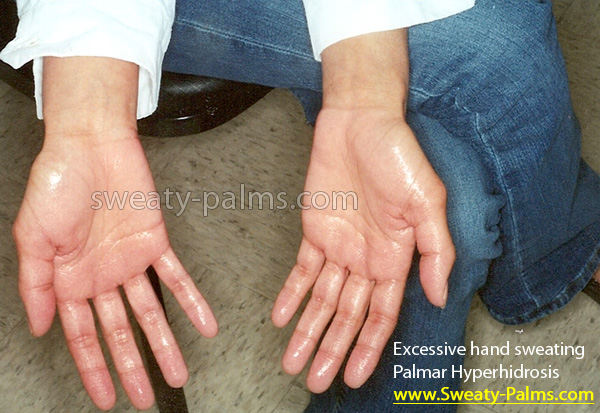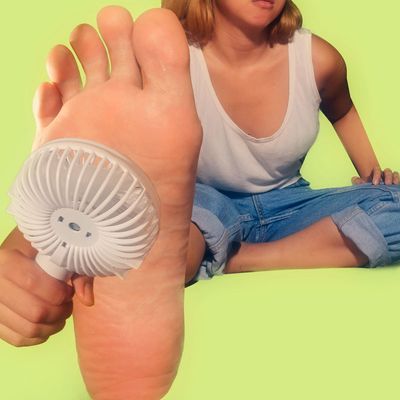Comprehending the Source of Excessive Sweating and Its Effect On Daily Life
Extreme sweating, additionally referred to as hyperhidrosis, is a condition that impacts a substantial portion of the population, yet its hidden reasons and effects on daily working continue to be rather enigmatic. While it is commonly comprehended as a physical feedback to manage body temperature level, the triggers for extreme sweating can differ extensively amongst people, encompassing not only physical elements however emotional and also emotional elements. Additionally, the effect of this problem prolongs past simple pain, usually affecting social communications and total top quality of life. By diving into the root triggers of hyperhidrosis and exploring its multifaceted effects, a much deeper understanding of this prevalent concern can be gotten, dropping light on the complexities that individuals grappling with excessive sweating navigate each day.
Physiology of Sweat Glands
The guideline of sweat production, a crucial physical process, is largely managed by the task of sweat glands distributed throughout the human body. Gland are categorized right into two primary types: eccrine and apocrine glands. Eccrine glands are one of the most numerous and are located in practically all locations of the body. They play a crucial role in thermoregulation by secreting a watery liquid onto the skin's surface, which vaporizes and helps cool down the body down. In comparison, apocrine glands are concentrated in locations rich in hair roots, such as the underarms and groin, and their secretions are thicker and milky in look.
When the body temperature level climbs, either due to exercise, heats, or emotional stress and anxiety, the nervous system activates the gland to produce sweat. This sweat is composed mostly of water and electrolytes like salt and chloride. The process of sweat production is crucial for keeping the body's internal temperature within a narrow, ideal array, highlighting the critical function gland play in human physiology.
Triggers for Excessive Sweating
In recognizing the source of extreme sweating, it is vital to recognize the triggers that can lead to this physiological reaction. Extreme sweating, likewise recognized as hyperhidrosis, can be motivated by numerous variables, both environmental and physiological. One common trigger is emotional stress or anxiety, which can stimulate the body's sweat glands to produce more sweat than is necessary for cooling. Physical exertion, heats, and spicy foods are also known to trigger too much sweating in people vulnerable to this problem. Additionally, specific clinical conditions like diabetes, menopause, or hyperthyroidism can add to extreme sweating also.
In addition, medicines such as some antidepressants, opioids, and certain supplements can additionally serve as triggers for hyperhidrosis. Understanding these triggers is crucial in handling too much sweating successfully - Sweaty hands treatment. By identifying and resolving the particular triggers that motivate excessive sweating in a specific, health care providers can establish personalized treatment strategies to reduce this problem and improve the see it here person's lifestyle
Medical Conditions Associated
Connected with excessive sweating are different clinical conditions that can worsen this physical response. One typical problem is hyperhidrosis, a disorder defined by extraordinarily increased sweating that surpasses the body's thermoregulatory demands. This can manifest in focal areas like the hands, soles, underarms, or face, impacting an individual's lifestyle as a result of social embarrassment and discomfort.
Additionally, endocrine disorders such as hyperthyroidism, diabetes mellitus, and menopausal warm flashes can likewise lead to excessive sweating. Hyperthyroidism view causes an overflow of thyroid hormonal agents, speeding up metabolism and triggering sweating.
In addition, infections like endocarditis, hiv, and consumption have actually been connected with evening sweats, a typical sign known to interfere with sleep and influence general well-being. These clinical conditions highlight the varied series of underlying elements that can add to extreme sweating, necessitating detailed examination and management by medical care experts.
Psychological and Mental Factors

Influence on Social Communications
Extreme sweating can have extensive effects on a person's ability to involve comfortably in social interactions. The noticeable signs of sweat spots or damp patches on garments can lead to humiliation and self-consciousness, creating individuals to take out from social scenarios. This withdrawal can affect partnerships, limit social activities, and prevent individual and professional growth.

Moreover, the anxiety and self-confidence problems originating from too much sweating can influence communication and interpersonal skills. Individuals may have a hard time to concentrate on discussions, get involved in team tasks, or share themselves with confidence. This can lead to feelings of seclusion and loneliness, as social links become testing to maintain.
Final Thought

While it is frequently comprehended as a physiological response to manage body temperature level, the triggers for extreme sweating can vary widely amongst people, including not only physical variables yet likewise emotional and emotional components. By diving into the origin triggers of hyperhidrosis and exploring its complex impacts, a deeper understanding of this prevalent concern can be gotten, shedding light on the intricacies that people grappling with excessive sweating browse on an everyday basis.
Physical exertion, high temperature levels, and spicy foods are likewise recognized to activate excessive sweating in people susceptible to this problem. By determining and addressing the details triggers that prompt too much sweating in a private, medical care suppliers can develop tailored treatment strategies to minimize this problem and improve the person's quality of life.
Extreme sweating can have profound impacts on a person's ability to involve comfortably in social communications.